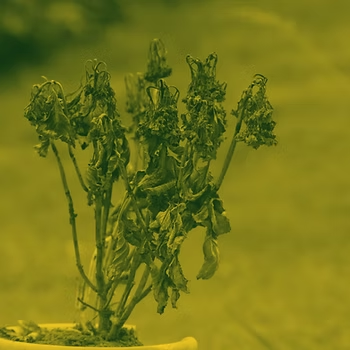"Gone in Goliad" by Danna Walker
- roifaineantarchive
- May 27, 2024
- 4 min read

So, yes, Goliad, population 2,000, where I had last been perhaps 60 years before — a kid roaming the orchard behind my great-aunt’s old, white frame house. My great-great grandfather’s grave is there, right where he lay as he was shot, according to family lore, by Jesse James in 1869. My great-grandfather and one of my great-aunts are also buried there. My grandmother met my “rat, no-good, so-and-so” grandfather there. The town historian knew part of my family history, which was featured in at least two Texas history books.
I had to go, and I had to take Dad with me.
Goliad’s own past is fraught with death and intrigue. It was the site in 1836 of the Goliad Massacre as well as the scene later in the 19th century of bloody post-Civil War conflicts between posses of the law, Confederate sympathizers and desperadoes, my relatives included.
I was traveling to that very place, my dad in the backseat of my rental car, silent for once, perhaps listening for once,the dilemma of where to scatter his ashes at last over.
They showed up from Shreveport, LA, via UPS some years before. Inside the package was a decorative wooden box with a T.J. Maxx sticker on the bottom and a strange but familiar smell.
“Your Dad used to buy those little half-pint bottles by the case,” his widow said in explanation of the tequila that had spilled inside. “It seemed like a good tribute when I first put one in the box. But when I mailed it to you, I forgot it was there. I’m sorry it got broken.”
Monte Durward Walker’s presence intermingled with the distinct odor of cheap booze seemed perfect – dark humor worthy of Dad.
The ashes’ stewardship fell to me.
They stayed in my basement near Washington, D.C., for several years but after research on my family history, Goliad beckoned, and kept beckoning – the name grafted onto my identity, my father’s destiny there now so obvious.
But there were loose ends. Where to deposit them? What to say? How to be?
I feared I would choke, as my family tended to do when stakes were high.
**
Help came in a writing assignment involving a pretend correspondence with Audre Lorde in which I told her about my dad’s roots in Goliad, though I discovered he wasn’t at all “rooted.” I explained he was the only child born of an affair to his young mother and never knew his father, an older, married man reviled by my great-aunt who gave him the “rat” moniker.
I revealed to Lorde that I could push his buttons like no one else and that he struck me hard once, hurling me across the room in an unsuccessful effort to control my teenage defiance. The black eye was slight, to my disappointment.
I also told her that I never won an argument with him until, when at 34, I quit drinking and confronted him about his own, which meant he never again found ease with me as his funny and outrageous self.
“You turned on me like a viper in my chest,” he said.
I noted to Lorde that the wonderful irony of the words coming from me through her — also a confrontational woman — likely wouldn’t be lost on a man who once played jazz sax, sometimes took the less fortunate under wing, read voraciously and grudgingly tolerated his feminist daughter.
My “correspondence” with Lorde included a poem, which stood ready when I spread Dad’s ashes. I read the words out loud under a grand, gnarled tree in Goliad’s Oak Hill Cemetery in sight line to my great-aunt’s grave:
Trees without roots must search.
Trees without roots struggle to support branches.
Trees without roots burn quickly
with their ashes packed
but waiting to burst,
dependent in your hand
in the flat heat
where you say what goes.
Where love can erupt
where restless ideas
cast shadows
in the violent light
of Goliad.
**
Because of my dad, I grew up thinking it normal for men to flout rules and ignore convention. I understood that men weren’t beholden to others, and they didn’t admit to harboring guilt or regret, or need the acknowledgement of anyone, even in death. I also knew from my bedside scene with him just hours before Dad died of liver disease that he remembered we connected during our lives when it was most important, even though he had no model for doing that in his own formative years.
After scattering the ashes – all that was left of Dad’s 6’2”, 190-pound frame, crooked smile and graceful, long legs and feet -- I cried openly for my loss for the first time.
I figured it wasn’t the last word where he was concerned, but I had gotten him home with those who loved him in ways flawed and raw. Him – the outsider, the one with the history, the stain of his secret birth that made him separate and special -- not with the others in the ground but already drifting into the elements, just as he always had.





Comments